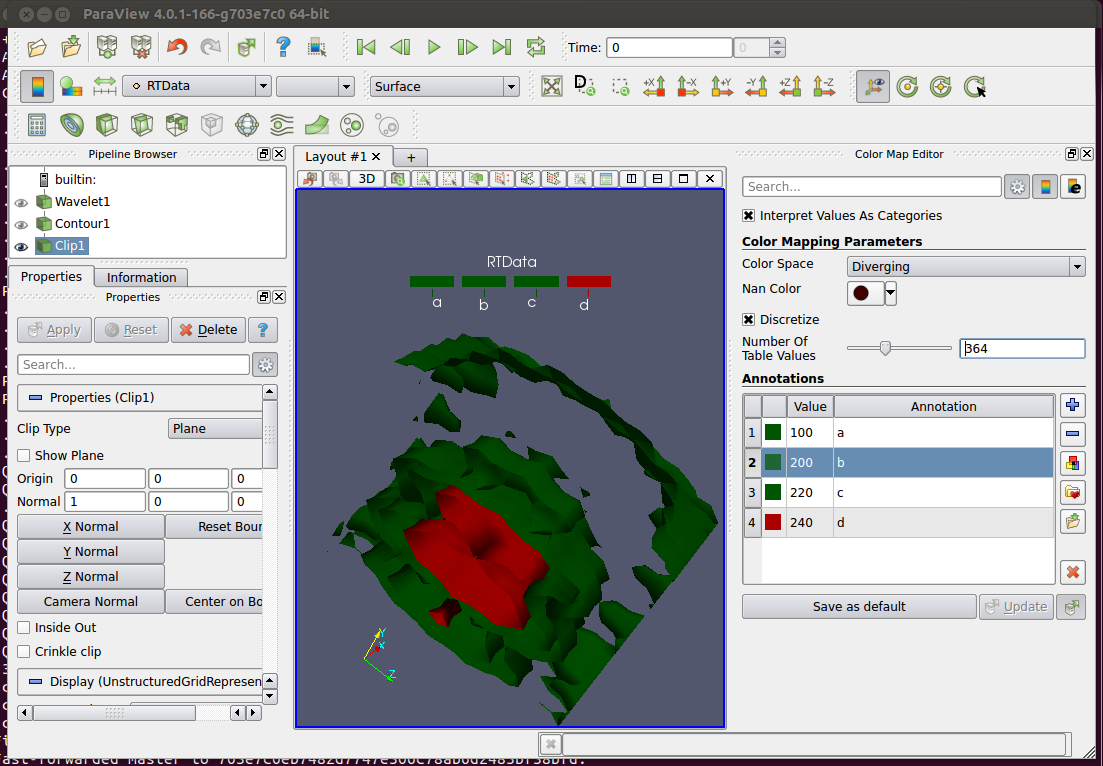I have a set of points, among which a subset needs to have the same color in vtk file format. For ex. all agents with table value
0.0, 0.0, 0.0, 0.0
will have same color. Here is my vtk
POINT_DATA 11
SCALARS Gid FLOAT
LOOKUP_TABLE table
0
1
2
3
4
5
6
7
8
9
10
LOOKUP_TABLE table 11
0.0 0.0 0.0 0.0
0.0 0.0 0.0 0.0
0.0 0.0 0.0 0.0
0.0 0.0 0.0 0.0
0.0 0.0 0.0 0.0
0.0 0.0 0.0 0.0
0.0 0.0 0.0 0.0
0.0 0.0 0.0 0.0
0.0 0.0 0.0 0.0
0.0 0.0 0.0 0.0
1.0 1.0 1.0 1.0
Could anyone tell me how to do the same in paraview, I mean the associated parameters that need to be changed in Paraview, or is it that the vtk itself does not do as I want?
